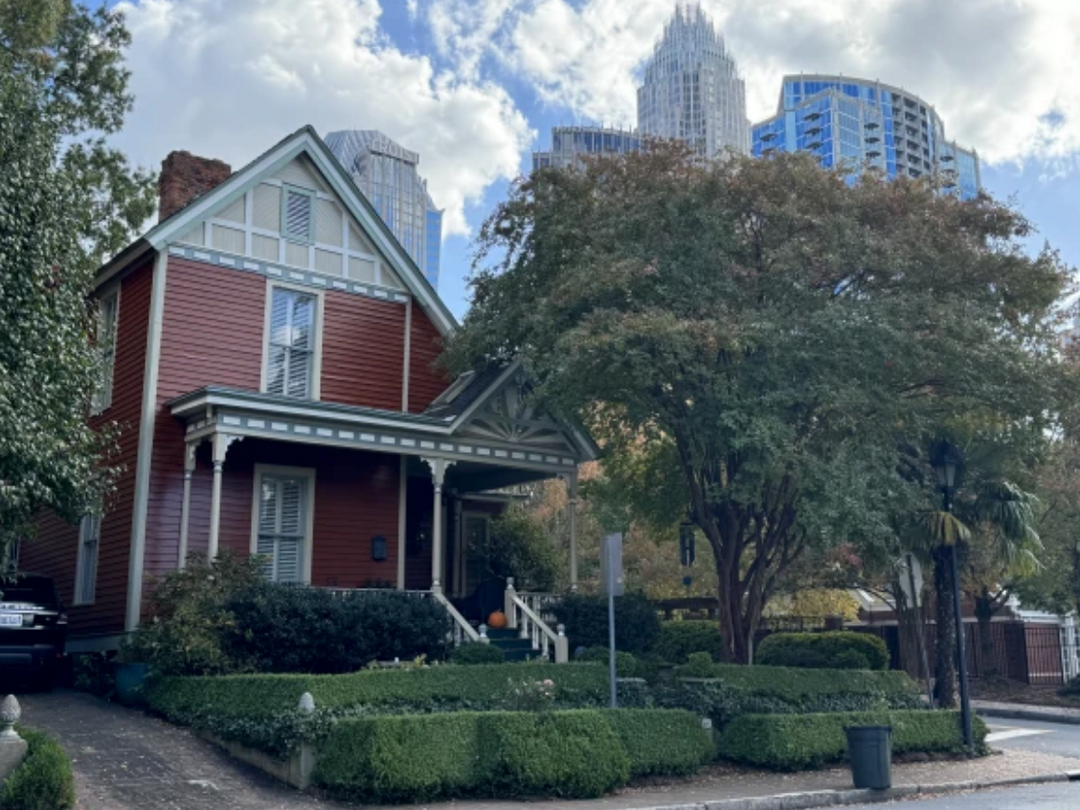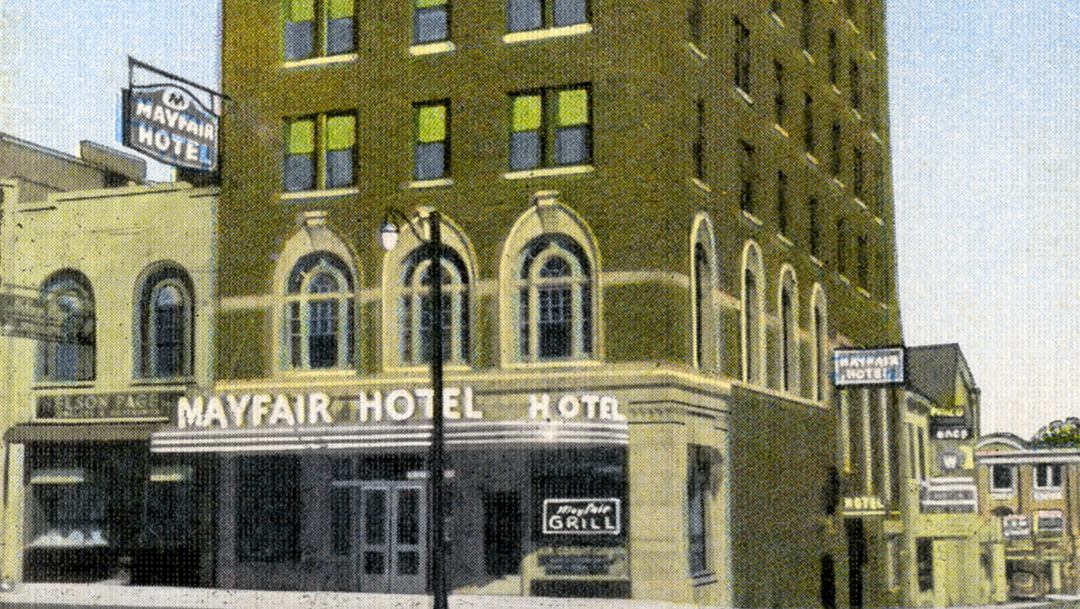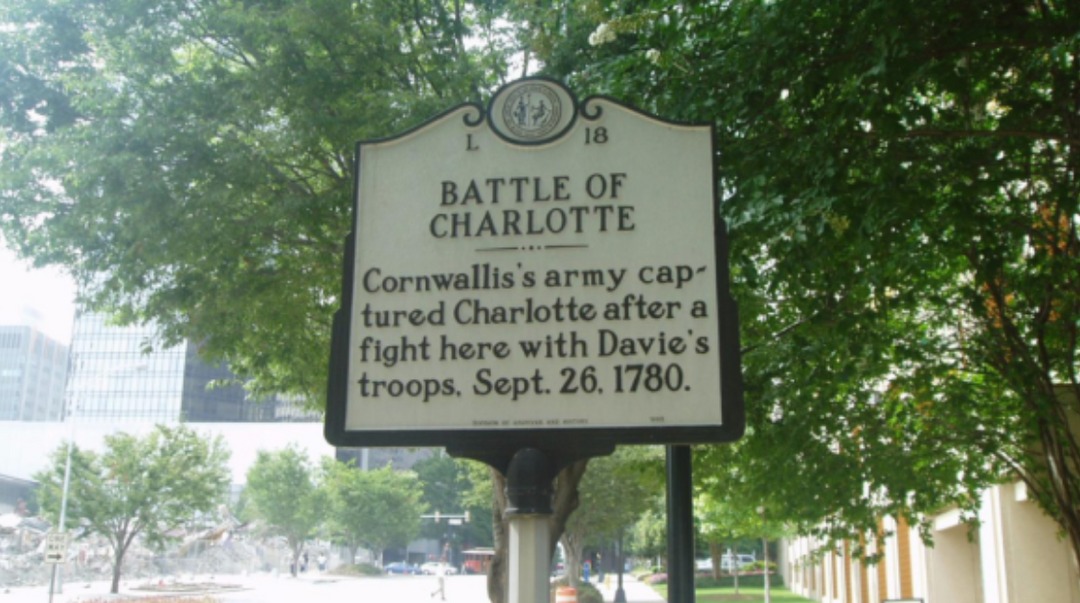Fact Friday 441 - The Forgotten Charlotteans: African American Slaves, Part 2
Happy Friday!
This week's Fact Friday comes to you from
---
"Blind Dick"
The father of Dr. Annie Alexander, Dr. John Brevard Alexander (1834-1911), is another such conundrum. He was an unreconstructed Confederate, with racial views which although common at the time, we find deplorable today. But by all accounts he was also a good and moral man; intensely civic minded and a devout churchgoer. No better proof of his quality is needed than the fact that his daughter was Dr. Annie Alexander, who herself was a great woman.
Steam and rail power were making horses obsolete. Trade and commerce were erasing agrarian culture and Protestant traditions. And more dramatically, in Alexander's view, racial equality (at least in principle, if not yet in practice) was shattering the white-dominated hierarchical society which Alexander and other property owners had known. Faith and religion were on the wane, he believed, while secularization and capitalism were spreading like one of the contagions Alexander as a doctor sought to treat. "One of the great changes we see in Charlotte is 'the get up and push' of all the trades people;' he wrote. "The mighty push to pick up the floating dollar seems to be the chief aim of life."
We would dispute many of his observations, or at least characterizations, particularly as they relate to African Americans and the legacy of slavery in Mecklenburg, as simplistic and bigoted. For example, his belief that "the affection that existed between master and slave was wonderful indeed" or that African Americans "has more real enjoyment prior to 1865 than they have ever had since."
But Dr. Alexander, in trying to recount, by his lights, the history of the community in which he lived also attempted something grand, and ennobling. He named and thus kept alive in the historical consciousness at least one African American of that time, who otherwise would be lost to us as well.
"If the great events that occurred in the county should be preserved with fidelity, why should those of lesser grade be passed over in silence [?]" he asked. "It is our desire to treat all subjects fairly; even slavery that we not only tolerated, but defended for one hundred and fifty years." And with this spirit in mind, Dr. Alexander included in his History a brief portrait of an African American slave named "Blind Dick."
Where this man came from, his age and real name we don't know. He might have been taken as a child from Africa, or perhaps he was born in America, perhaps even in Mecklenburg County. Likewise, we don't know the names of his parents, siblings, or children. In this, the man named "Dick" stands for thousands of others in the area who spent their life in bondage and whose life stories have disappeared.
He was, wrote Alexander, "the most noted negro in the county. He was a slave, the property of Lawyer James Hutchinson."
According to Alexander, Dick "was a noted, landmark in the town for more than twenty years before the great civil war, and lived for several years afterwards. His master gave him his time and protected him from evildisposed." He must have suffered unimaginable challenges as a blind man and a blind slave at that, in the pre-Civil War period.
He labored "to feed and watered and curry hoses, carry fresh water to a number of rooms or offices, black boots, make fires and do sundry turns. He went about everywhere by himself, feeling his way with his stick. Almost every person in the county knew Blind Dick. He was very polite and respectful to every one, and every one wished to help him along, so he was well· cared for."
Dick could also fend for himself, despite his handicap. "Once while carrying a bushel basket of fine apples on his head along the street, a gentleman standing in his door reached up and picked an apple off the basket, which Dick at once perceived, and struck with great force where he supposed the offender was who had taken the fruit that had been entrusted to his care. Dick was regarded as honest, and always bore a good name from white people." Dr. Alexander sought in the sweep of his book to account for the great deeds of the county. But still he found a place for this simple man, and for that we must give him credit. "However humble an individual may be;' Alexander wrote, "we must not forget that he is a part of the whole, and may be known to all the citizens of a small town, especially if respectful and makes himself useful."
---
Sources:
"Eminent Charlotteans: Twelve Historical Profiles from North Carolina's Queen City," by Scott Syfert, 2018.
Email chris@704shop.com if you have interesting Charlotte facts you’d like to share or just to provide feedback!
“History is not the past, it is the present. We carry our history with us. We are our history.” - James Baldwin




